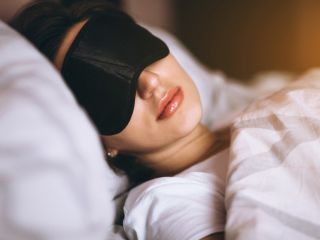Your body temperature changes as you fall asleep. Your body cools down when you lie down and warms up when you get up .
If your room is too warm, you might have a hard time falling asleep. Setting your thermostat to a cool temperature between 60–67°F (15.6–19.4°C) could help
Taking a warm bath or shower could also help speed up the body’s temperature changes. As your body cools down afterward, this can send a signal to your brain to go to sleep
One literature review found that taking a hot bath or shower before bed could improve certain sleep parameters, such as sleep efficiency and sleep quality.
Sleep efficiency refers to the amount of time you spend asleep in bed as opposed to lying awake.
People who took baths or showers measuring between 104°F–108.5°F (40.0°C–42.5°C) 1 to 2 hours before bedtime experienced positive results.
They reported improvements in their sleep even if their baths or showers lasted for as little as 10 minutes.
Here are the steps:
- First, place the tip of your tongue behind your upper front teeth.
- Exhale completely through your mouth and make a “whoosh” sound.
- Close your mouth, and inhale through your nose while mentally counting to 4.
- Hold your breath, and mentally count to 7.
- Open your mouth and exhale completely, making a “whoosh” sound and mentally counting to 8.
- Repeat this cycle at least three more times.
This technique can relax you and help you fall asleep quickly.
It’s normal to wake up in the middle of the night. However, the inability to fall back asleep can ruin a good night’s rest
People who wake up in the middle of the night often tend to watch the clock and obsess about the fact that they can’t fall back asleep.
Due to poor sleep at night, people with insomnia tend to be sleepy during the day, which often leads to daytime napping.
While naps of short duration have been linked to improvements in alertness and well-being, there are mixed opinions about the effects of napping on nighttime sleep.
Music can significantly improve quality of sleep. It can even be used to improve chronic sleep disorders, such as insomnia
Caffeine is widely used among people to fight fatigue and stimulate alertness. It can be found in foods and beverages like:
- chocolate
- coffee
- sodas
- energy drinks
It’s believed that if you go to bed and try to force yourself to fall asleep, your chances of succeeding drop dramatically.
Instead, you can try paradoxical intention. This technique involves trying to stay awake instead of forcing yourself to sleep.
It’s based on the idea that the stress and anxiety produced by forcing yourself to fall asleep can prevent you from relaxing and snoozing.
Instead of lying in bed worrying and thinking about stressful things, visualize a place that makes you feel happy and calm.
















.webp)








